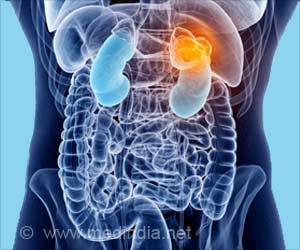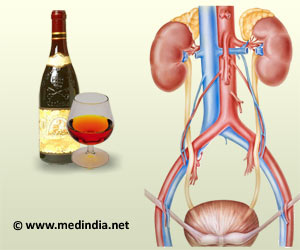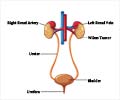Extensive study on kidney cancer genome sequences leads to specific mutation profiles as cause of this disease, a potential for targeted therapies.
- Studies to identify the unknown risk factors leading to cancer risk leads to mutation as one of the causes
- Genetic mutations disrupt the natural biological processes and these can be caused by internal cellular processes or external lifestyle factors
- The unique DNA mutation profile of patients can lead to path-breaking targeted therapies for kidney cancer
The outcome of a 7-year investigational study on mutagenic exposures in kidney cancer genomes were published in May, in the journal Nature. The investigation was conducted by a large international scientific team. The authors of the study include Prof. Sonata Jarmalaitė and Dr Rasa Sabaliauskaitė, both researchers at the Life Sciences Center of Vilnius University and the National Cancer Institute (1✔ ✔Trusted Source
VU Researchers Among the Authors of the Latest Study on Cancer Published in 'Nature'
Go to source). A team of scientists, from 11 countries globally, studied nearly 1,000 kidney cancer genome sequences and identified specific mutation patterns that shed light on the origins of this illness. The research has validated that smoking, cellular processes, and exposure to aristolochic acid are the primary causes of kidney cancer.
Furthermore, the team has uncovered a novel and distinct mutation profile.
The diversity of mutagenic exposures in kidney cancer genomes cannot be solely attributed to the well-established cancer risk factors.
Risk Factors for Kidney Cancer
The majority of kidney cancers are clear cell renal cell carcinomas (ccRCCs), and risk factors for this type of cancer include obesity, hypertension, and tobacco smoking. However, these factors only account for less than 50% of the global burden of ccRCC, and they do not explain the geographical or temporal trends in its incidence (2✔ ✔Trusted SourceGeographic variation of mutagenic exposures in kidney cancer genomes
Go to source).
The research outlined in this publication was designed to uncover novel risk factors associated with kidney cancer by utilizing a distinctive mutagenic algorithm capable of finding carcinogens through their mutation patterns. A total of 1,000 kidney cancer tumor samples from various regions across five continents were examined, encompassing areas with both high and low incidence rates. Lithuania, known for having the highest rates of kidney cancer in Europe and globally, was a focal point of the investigation. A leading type of mutation known as SBS40 was detected in the kidney cancer genomes of Lithuania and the Czech Republic. However, the source of this puzzling mutation continues to elude researchers.
The prevalence of kidney cancer in the Balkan region has been linked to the exposure of aristolochic acid, a substance commonly found in traditional medicines. This acid has been associated with a distinct mutation profile specific to kidney cancer. However, upon analyzing the cancer genome sequences in this study, no correlation was found between the mutation profile and common risk factors such as obesity or hypertension, which are known to be associated with kidney cancer.
The origins of the aristolochic acid exposure, the method of ingestion, and the nature of the exposure remain unclear (2✔ ✔Trusted Source
Geographic variation of mutagenic exposures in kidney cancer genomes
Go to source). To establish a basis for public health measures, it is necessary to ascertain the source and magnitude of this exposure.
Genetic Mutation as a Cause of Cancer
Cancer arises from the buildup of genetic mutations within the body, leading to the interference of normal biological functions. These mutations can stem from internal cellular activities such as faulty DNA replication and repair, as well as external factors like exposure to ultraviolet radiation from the sun or toxic substances found in cigarette smoke.Prof. Jarmalaitė, one of the researchers in this study stated, “Each tumour has a unique DNA mutation profile. A wealth of information on the mutation profiles of thousands of tumours has already been collected. The organised data can also be used to create a snapshot of mutational cancer – this kind of photograph is known as mutograph. It can reflect biological processes, the effects of carcinogens, regional patterns, and so on”.
Genome Sequencing Studies on Kidney Tumor Samples
The research included collecting clinical samples from individuals and the completion of questionnaires regarding health indicators and lifestyle habits. The Sanger Institute in Cambridge conducted the genome sequencing of both, the tumor samples and leukocytes. Despite the setback caused by the COVID-19 pandemic, the findings of the genome sequencing studies on 16 kidney tumor samples collected in Lithuania were published in the scientific journal 'Nature'. The remaining samples will be utilized for additional research purposes.The 'PROMINENT' project, led by Cancer Research UK, will continue in investigating cancer mutagenesis, focusing on the initial phases of carcinogenesis. The aim is to uncover the elusive causative reason behind the dominant SBS40 mutation in Lithuania and implement preventive strategies to lower the occurrence of kidney cancer.
This groundbreaking kidney cancer research leads to promising potential for patients and the research community. The research could lead to personalized treatment approaches based on an individual’s mutational patterns which will improve treatment outcomes and reduce the side effects of medications.
References:
- VU Researchers Among the Authors of the Latest Study on Cancer Published in ‘Nature’ - (https://www.vu.lt/en/news-events/news/vu-researchers-among-the-authors-of-the-latest-study-on-cancer-published-in-nature)
- Geographic variation of mutagenic exposures in kidney cancer genomes - (https://www.nature.com/articles/s41586-024-07368-2)
Source-Medindia
















